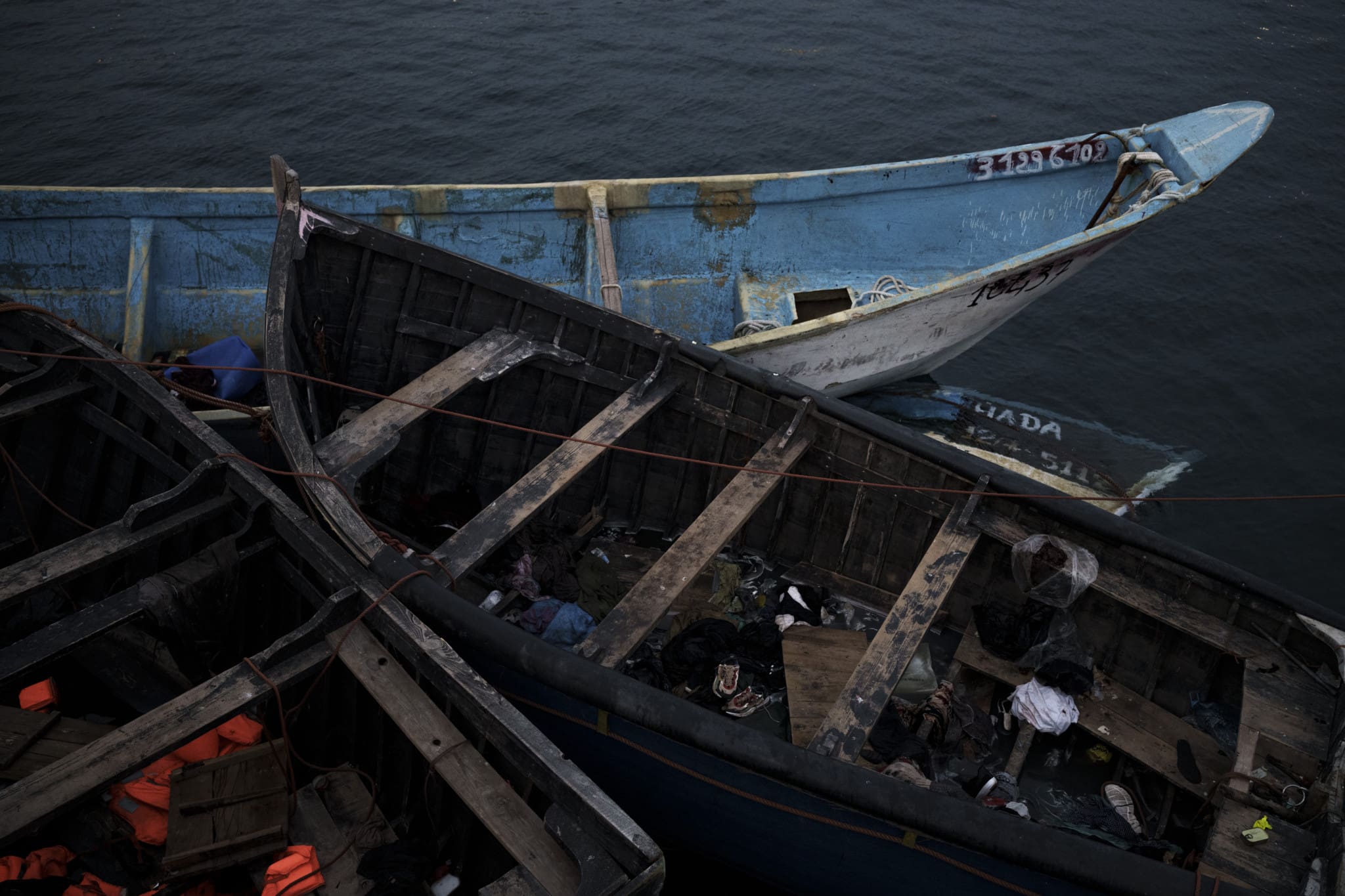A record number of illegal migrants have landed on the Canary Islands this year — surpassing the previous highest total for the Spanish archipelago set back in 2006.
Close to 1,000 illegal crossings from the African mainland were detected by authorities over the weekend as the latest surge in illegal immigration showed no sign of slowing down.
According to the Spanish interior ministry, a total of 31,933 migrants have now reached the Spanish territory in small boats from northwestern Africa, exceeding the 31,678 arrivals recorded 17 years ago.
Almost half of new arrivals made the journey across the Atlantic in October alone, with government data showing 14,976 people making the trip last month.
Over 50 percent of newcomers to the islands this year originate from Senegal and Gambia, the Spanish government stated.
The islands’ regional government has been sounding the alarm for months regarding the crisis, calling on Madrid and Brussels to provide greater support. The Spanish territories are seen as a more attractive route for migrants seeking to reach the European Union due to increased border security at more traditional routes across the Mediterranean in recent times.
President of the Canary Islands Fernando Clavijo said the figures “define the humanitarian emergency facing the Canaries.”
“The 2006 data has been surpassed, but the response from the state and the EU is not the same. Migration management on the southern border must be a priority on the Spanish and European agenda,” he wrote on X.
Last month, Clavijo said he was “amazed” and “perplexed” by the left-wing Spanish government’s “total silence” over the escalation of the migrant crisis on the islands, and police officials warned that resources are overstretched.
“It is true that by diverting staff to assist these people, we once again find ourselves with an insufficient number of patrol cars in such essential services as public safety,” said José Luis Gallardo, the spokesperson for the Spanish Police Confederation (CEP).
[pp id=96080]
The government in Madrid recently announced its intention to convert military barracks on the Spanish mainland into emergency migrant accommodation, but this is understood to house just 3,000 people, fewer than 10 percent of this year’s new arrivals alone.
Spain is also in discussions with the Senegalese government about the measures it should take to deter migrants from making the journey to Europe.
Not all who embark on reaching the islands succeed, and reports from the Spanish emergency services over the weekend confirmed that four people had died after four boats became distressed at sea on Friday and Saturday.
Thirteen migrants were also hospitalized as sea rescuers intercepted several vessels and escorted them to a port on El Hierro, the most southerly of the Canary Islands.
Early last month, nine migrants were even arrested for piracy after hijacking a Dutch ship that rescued them at sea. It is understood the group became angry at the crew who had been instructed by the Morrocan authorities to return them to the African mainland.





